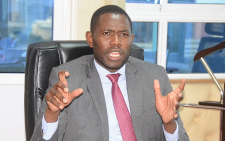Business elites mum as political shenanigans threaten economy

Abductions and political shenanigans are threatening to drag Kenya’s economy through a dark, treacherous patch, while people go about their business as if nothing is happening.
For whatever reason these kids are missing, one would expect all Kenyans to rise and demand the rule of law be upheld. Yet, the silence from the so-called “economic power brokers” is deafening.
It’s as though their wealth, status, and neatly pressed suits have insulated them from the ground where the heartbeat of the nation — often in pain, fear, and frustration — throbs. But let’s face it: this silence is not just cowardice. It is recklessness, plain and simple.
How is it possible that in a country with a duly elected commander-in-chief, Kenyans are told he has no knowledge of what is happening within the disciplined forces under his oversight? If the one we entrusted with the keys to our security doesn’t know, who does?
Let’s not sugarcoat the issue: these abductions are not just human rights violations — they are a ticking time bomb. When young people disappear, they leave behind broken families and wounded communities. This mistrust spreads, eroding the social fabric, and the consequences spill over into every facet of society, including the economy.
The youth who are silenced, abducted, and brutalised today will rise in anger tomorrow. And when they do, it won’t be government buildings that bear the brunt of their frustration. It will be businesses — shops looted, properties destroyed, and livelihoods disrupted. It is the traders and the so-called “moneyed class” who will pay the heaviest price.
So, why are Kenya’s business elites silent? How can they afford to sip imported coffee in boardrooms, debating profit margins, while the streets cry out in despair? Do they not realise that their silence enables bad governance? That their inaction plants the seeds of unrest, which will inevitably sprout into chaos that threatens their supply chains, operations, and bottom lines?
It is said that a businessman who prioritises profits over the society that sustains those profits is not a visionary but a fool. And Kenya’s private sector is brimming with such shortsightedness. The link between governance, security, trade, and social responsibility is razor-thin. Neglect one, and the others collapse.
Look no further than the 2024 protests. Businesses were shuttered, properties looted, supply chains disrupted. Many companies are yet to recover. Why? Because anger, frustration, and hopelessness boiled over — a lethal combination brewed by government arrogance and private-sector silence. When the youth take to the streets, it is the shop owners, supermarket chains, matatu operators, and industrialists who bear the brunt of such rage.
That is the reason the private sector must speak up — not out of charity, but out of self-preservation. They must demand accountability from this government and the ones that follow. They must condemn abductions and human rights abuses. They must push for policies rooted in good governance and the rule of law.
Silence is not neutrality — it is complicity. Every day they fail to speak out, they align themselves with a system that is not just unjust but also unsustainable.
— The writer is People Daily’s Business Editor














